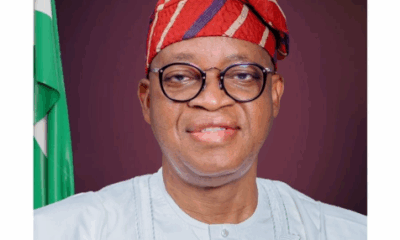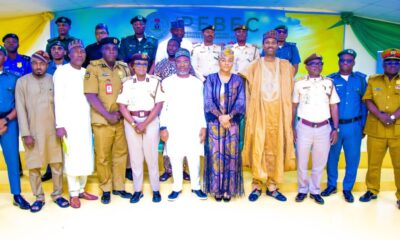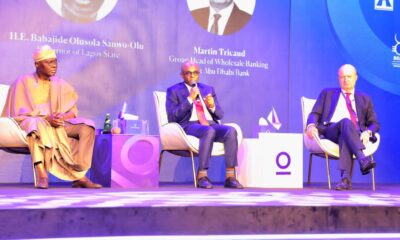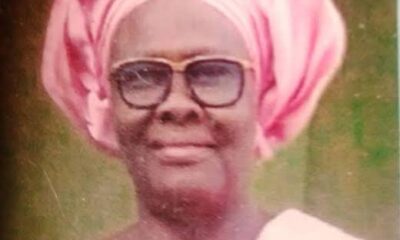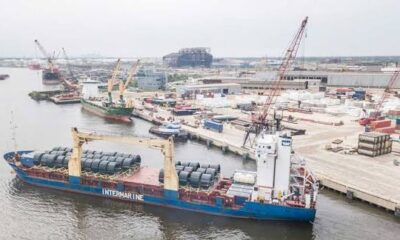Maritime
‘Politically Motivated Ports Will Not Grow Our Economy’ -Experts, Stakeholders
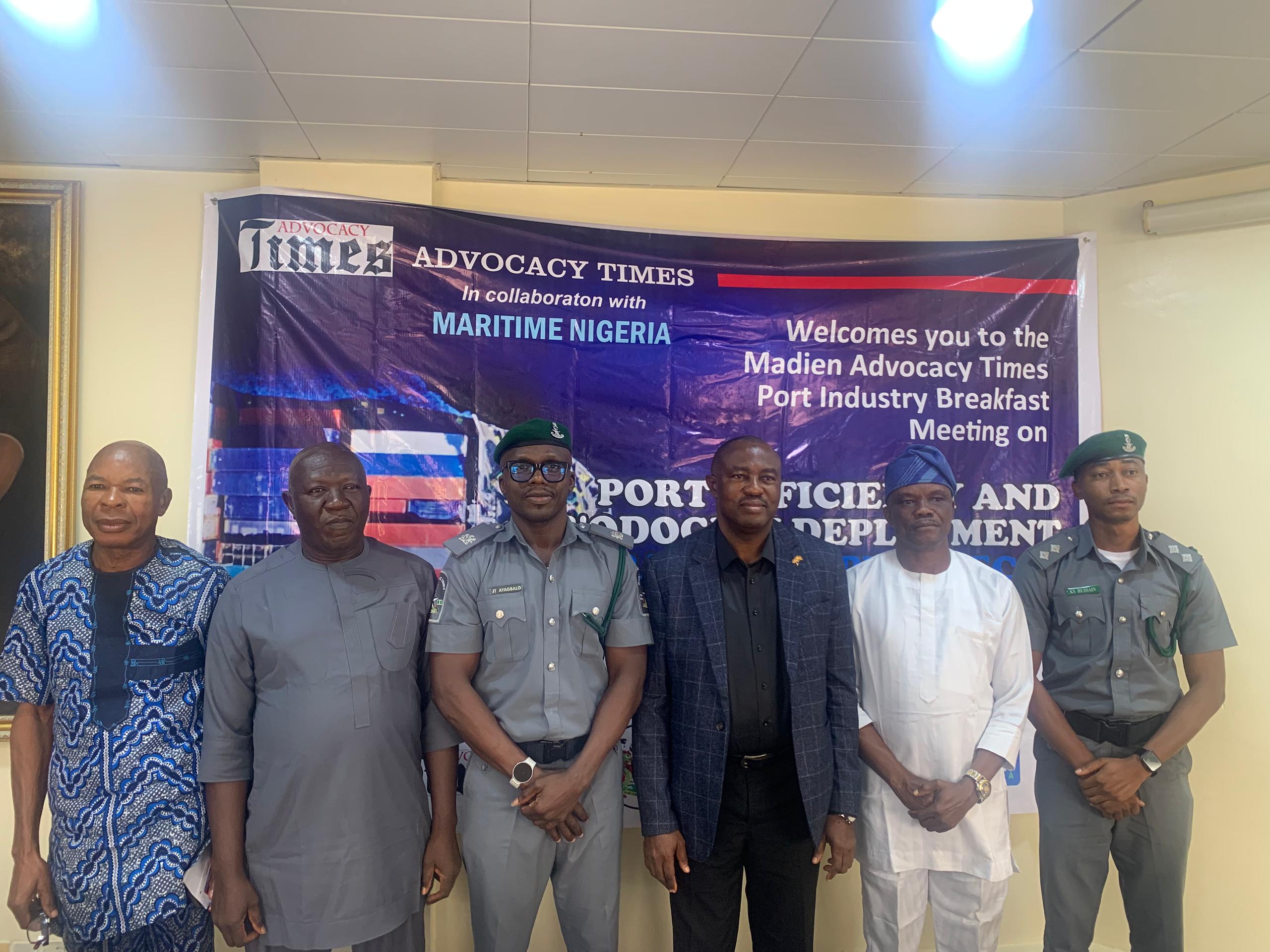
BY GBOGBOWA GBOWA
Maritime stakeholders are sounding the alarm over Nigeria’s growing trend of politically driven port development, cautioning that such projects risk becoming costly missteps if not anchored in economic viability and trade demand.
Speaking at a recent industry forum organized by Advocacy Times online newspaper, Speaking, maritime expert and publisher of JournalNG Magazine, Ismail Aniemu emphasized the need for strategic planning over political ambition.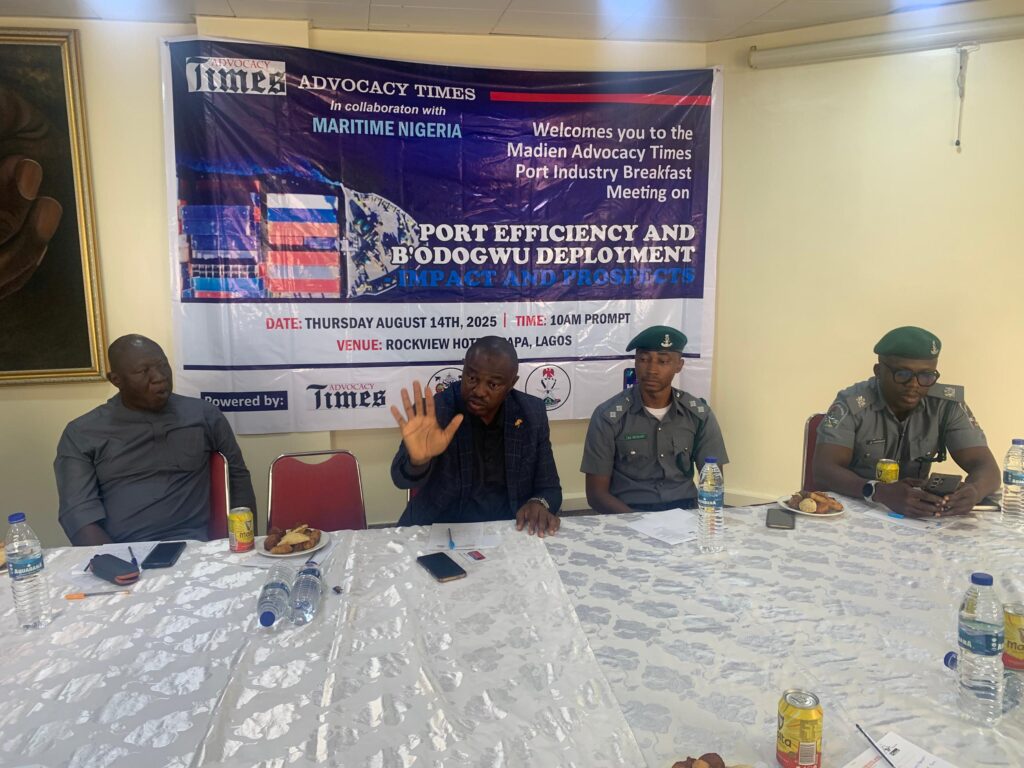
“We must stop building ports for prestige or political visibility. Infrastructure must follow trade—not the other way around”, he cautioned.
He expressed worries over emerging pattern where nearly every coastal state is positioning to construct its own seaport regardless of whether they have the economic base said such is not the way to go.
Aniemu who doubled as the Chairman of the maiden Advocacy Times Port Industry Breakfast Meeting with the theme, “Port Efficiency and B’Odogwu Deployment – Impact and Prospects”, said that neglecting the essential fundamentals could lead to wasteful investments.
While emphasising the relevance of need analysis, he urged the federal and state governments to focus on optimising the country’s existing legacy ports rather than embarking on political ornaments that passes for ports. This is even as he listed Nigeria’s legacy ports including Apapa, Tin Can, Warri, Port Harcourt and Onne as prime examples of efficient port system, while lamenting the underutilized infrastructure such as Burutu, Oko, Sapele and Calabar ports as examples of grossly underutilized, partly due to official negligence and corruption.
He pointed out most of the latter ports once formed the backbone of Nigeria’s maritime economy before they were left to used leading to deterioration and later reassigned as operational bases for non political activities.
Citing Bayelsa, Edo, Ondo, and Ogun States as examples of states currently pursuing seaport projects without clearly articulating the economic rationale behind them, Aniemu warned that this approach mirrors what has already happened in the aviation sector, where several airports across the country exist as status symbols rather than as functioning, economically viable transport hubs.
He described the Sapele Port as once a major export terminal for rubber and timber as a cautionary tale. Now converted into a naval engineering training school, the port no longer plays a role in commercial trade, highlighting the consequences of economic decline and underutilisation of key infrastructure.

While acknowledging the desire of many states to participate in Nigeria’s maritime economy, Aniemu maintained that Lagos remains uniquely positioned as the country’s commercial and logistical hub.
With its proximity to ECOWAS markets, the busiest airport in West Africa, and high-volume land border access, Lagos naturally draws the largest cargo throughput in the country. He lauded efforts to expand port infrastructure within Lagos such as at Badagry, saying it makes far more economic sense than duplicating port investments in states without trade capacity.
The maritime expert commended the Lekki project as a model of economically driven infrastructure, already serving as a transshipment hub for cargo heading to Ghana, Côte d’Ivoire, Benin Republic, Togo, and Cameroon. The port, he said, proves that with sound vision, geographic advantage, and the right investment, Nigeria can reclaim leadership in West and Central African maritime logistics. He compared it with the advanced port infrastructure already operational in smaller West African nations like Togo and Benin Republic, where port automation, port community systems, and multimodal connectivity are well established.
Also speaking, the Secretary General, International Freight Forwarding Association of Nigeria (IFFAN), Tochukwu Nwanbueze stressed the importance of transparency, and economic justification in Nigeria’s infrastructure planning. The freight forwarder who represented the president of IFFAN, Lawrence Uba, noted that the ongoing trend of pushing for new ports in nearly every state regardless of valid feasibility study supporting their establishments reflects the narrow narrative in economic planning by present day political leadership.
Citing examples like the underutilised Onitsha and Baro ports, which remains dormant due to its inability to accommodate large vessels, he highlighted the risks of pursuing projects without proper feasibility assessments or long-term viability.
Nwanbueze emphasised that proximity to existing functional ports should be leveraged rather than creating redundant and costly facilities in nearby states.
While acknowledging that states like Ogun have products suitable for export, he argued that such cargo can be efficiently routed through Lagos Ports, eliminating the need for separate seaports.
The convener and Publisher of Advocacy Times, Paul Ogbuokiri in his welcome address, emphasised the efficiency of Nigerian ports as a matter of urgent national interest, stressing that a functional port system cannot be negotiated in growing the Nigerian economy.
While acknowledging the efforts of the Nigerian Ports Authority (NPA) under the Dr. Abubakar Dantsoho, whose leadership style he pointed has been central to purposeful reforms for greater economic benefits.
Ogbuokiri also called attention to the ongoing one-billion-dollar ports modernisation project initiated by President Bola Tinubu’s administration and currently under implementation, noting that the port modernization represents a significant investment in Nigeria’s trade future.
The event which was hosted in collaboration with online news platform, Maritime Nigeria, published by Kevin Kagbare however remarked that it is essential to measure the ongoing ports modernization practical effects on efficiency and competitiveness.

